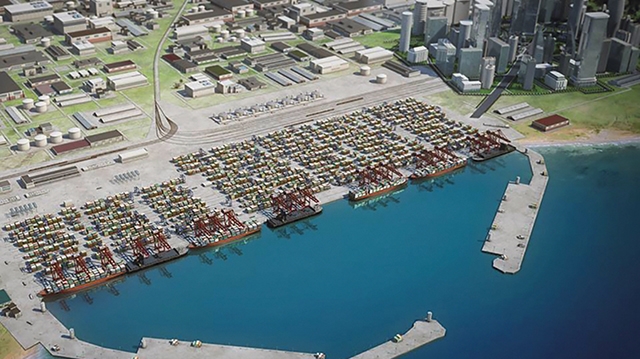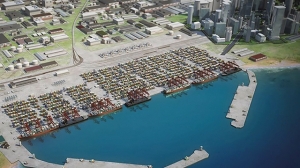The Fate of Anaklia after Anaklia Development Consortium
Op-Ed
This year the fate of the Anaklia Port will remain of great interest to Georgian society, as well as foreign observers. The port project is inextricably linked to Georgia's internal politics which are likely to be volatile throughout 2020 as the country prepares for important parliamentary elections.
A further dimension of importance is attached to the port due to geopolitics. Indeed, over the past year or so, the issue of Anaklia has become part of a geopolitical competition spanning Eurasia, where the US and China are waging a battle which does not necessarily involve direct or even proxy warfare but instead a clearly visible contest, with China vying for control of vital roads, ports, railways and natural resource bases. The US, considering the country's maritime nature and its distance from the Eurasian continent, has difficulty successfully competing with the Chinese. The competition between the two states, unlike the one which took place between the Soviet Union and the US, involves the economic and technological spheres (the past Soviet technological success having been short-lived).
Various statements from Georgian officials and most notably from the US side over the past year have shown that Washington is deeply interested in Anaklia, as American influence seeks to block Chinese moves in the Black Sea. Yet many in Georgia wonder why, if there is increased American interest, no tangible progress has been made so far on the construction of the port.
Let us distance itself from the Georgian perspective and look at the Anaklia problem from a global point of view. There have been numerous calls from the analytical community urging the US to have larger presence in the Black Sea region, but so far we have seen limited military and economic support for the pro-Western Georgia and Ukraine. For the US, the Black Sea is not of as much geopolitical importance as the South China Sea or Persian Gulf.
This is not to say the Anaklia port project is not important to them. On the contrary, there have been consistent moves by the US to counter Chinese interests around the future port. The very fact the Chinese did not get the right to build the port, but their only competitors, Americans, did, shows Washington's long term perspective. Moreover, in mid-2019, the US’ Mike Pompeo strongly supported the project while criticizing the Chinese and Russians.
This brings us to Russia. Though it has become something of a fashion in Georgia to link all foreign policy failures to Moscow, the Kremlin has rarely featured in the Anaklia port issue. In fact, there have been no official statement or even suggestions that Russia is particularly interested in the Anaklia project. However, the economic development in the Black Sea region shows an increasing need to have new ports, preferably deep sea ones, which explains Russia's recently announced intent to build a new deep sea port at Taman, on the Kerch Strait.
On January 9, the Georgian government announced it would begin procedures to cancel the agreement signed with the Anaklia Development Consortium (ADC) since the latter had not abided by requirements laid out in the initial 2016 agreement.
Though this is a negative sign which postpones the construction of the Anaklia port, it could also be argued that the idea of Anaklia port is likely to survive. After ADC, new projects could emerge. As argued above, the US’ interest in the port could serve as a major driver behind future initiatives.
Naturally, this will be no guarantee that the port will be constructed in the near future, but geopolitical developments such as the US-China competition and internal Georgian politics will keep the idea of constructing the Anaklia port potentially feasible.
By Emil Avdaliani











